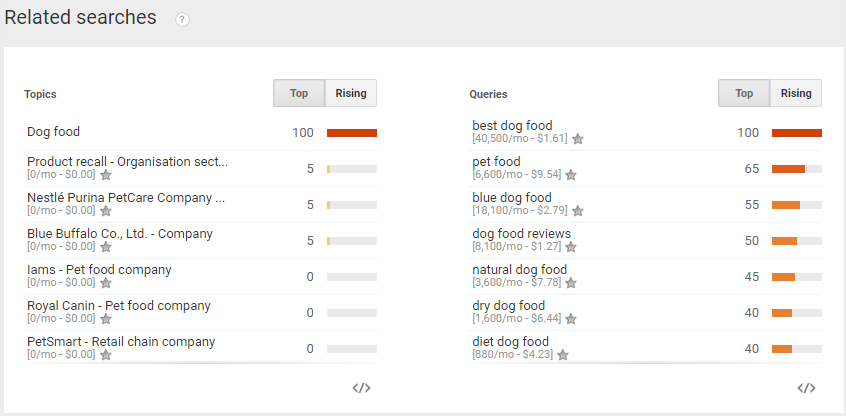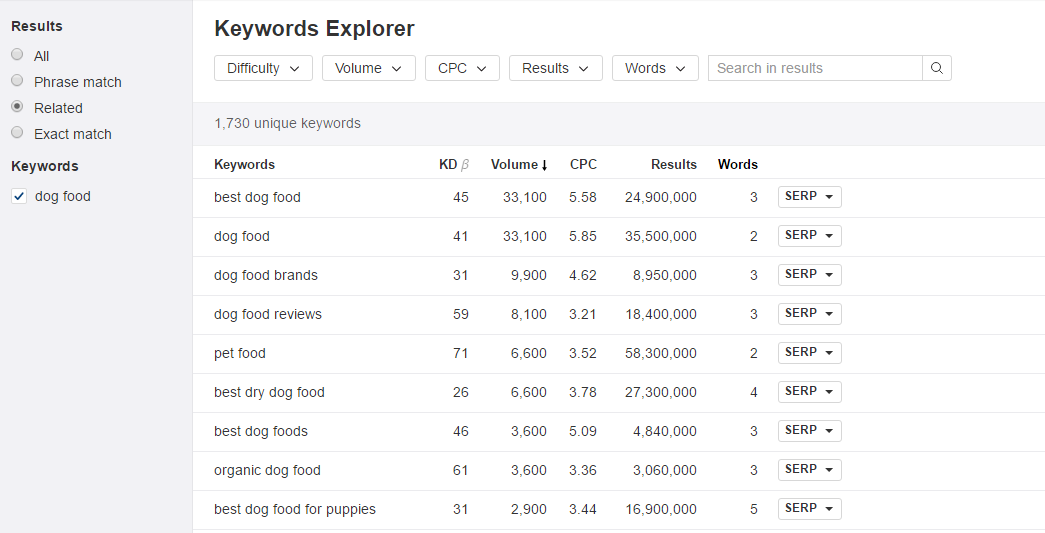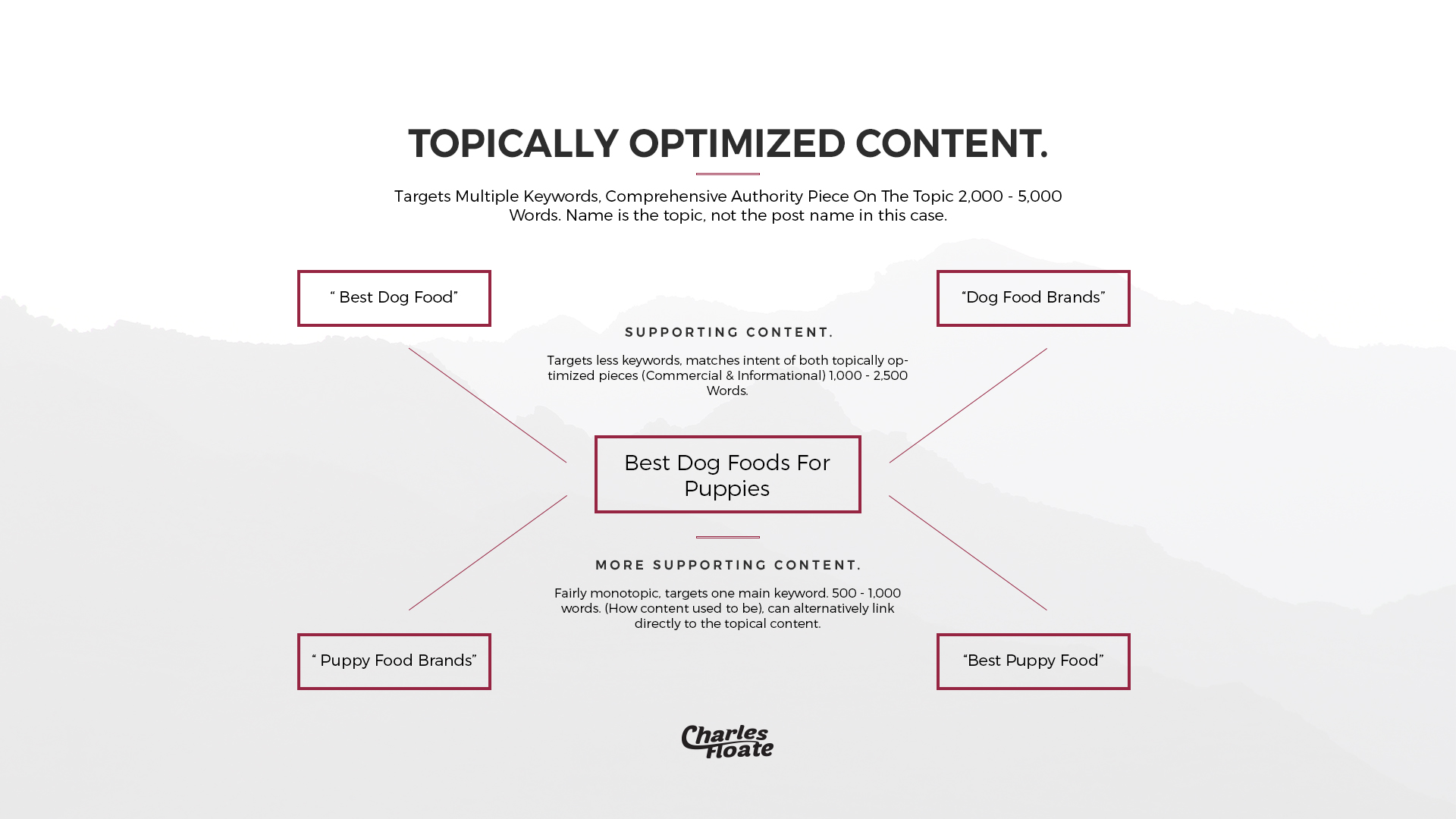Warning: This post is rather technical and the wording requires a level of SEO knowledge most beginners will not have.. This is supposed to be a complete introduction to the topic, but just because it’s an introduction does not mean that it is beginner friendly.
Table of Contents
Introduction
Recently, in one of my videos, I mentioned that I’d be doing a post on Topical SEO. This post really is meant to be a beginners introduction to the subject, for someone who has never come across the term before, but having said that, it is a fairly advanced topic that I want to be as thorough with as possible.
Regardless, if you’re looking to find out about how you can harness topical SEO on your site for better rankings then read on, because no matter what level you are you’re going to want to see this!
What Is Topical SEO
Topical SEO, the term that has really been coined over the last 12 months, is really more to do with a different approach to optimizing your site.
Instead of optimizing for keywords, people have started to recommend organizing and optimizing your site around topics, or more specifically a single topic.
There’s no doubt that this is a part of what Topical SEO is, but in reality there’s so much more to it than that. A lot of the guides and content out there on this subject are either vague or wrong. To understand why that is, we’re going to have to talk about the basis of why this idea has come about in the first place and what it is exactly that people have been missing on this subject.
How Google Works in 2016
To understand topical SEO properly we need to talk about how search engines work and in particular how Google works in 2016.
Of course some of this is conjecture because nobody knows precisely how it all works, but the basis of how a search engine works comes down to two things:
- Information Retrieval
- Indexing
Now their exact algorithm is something we don’t know, however that’s the basis of how a search engine such as Google operates.
They send out crawlers, bots, spiders (whatever you wanna call them) around the web to retrieve various pieces of information about your site’s pages. This may include content length, load speed, linking pages, meta data, markup and so on.
This information is then passed into the secondary index, you can think of this as a huge database or huge collection of databases where Google will figure out what to index your pages for and precisely where to ‘rank’ those pages in the SERPs.
Once indexed your site literally ‘shows up on Google’ and that’s the primary index of a search engine.
Relevancy
There was a time when Google didn’t have the means to index as efficiently as they can today and whenever we see a major ranking factor becoming devalued, or a new one popping up it’s because of how they’re changing their indexing algorithms.
One thing that has been on-going is a shift towards relevancy; topical SEO really revolves around this subject itself.
Why Topical SEO Isn’t Just About Keyword Research
There are a number of Google Patents that Bill Slawski regularly talks about on his blog, SEO By The Sea (Great blog, god awful design) and some of these were really interesting to me.
For instance, there were a number of different posts on his blog over the last 5 years or so, that talk about how Google determines relevancy between topics.
Here’s roughly how this works
A group or a cluster of keywords will be assigned relevancy to one another, this “cluster” starts to define a topic.
Once a topic has become it’s own “entity” in the secondary index, further associations of relevancy will be made and cross-referenced to other topics / entities and even individual keywords from one topic to individual keywords in another topic.
This allows Google to provide us with more relevant results than ever before.
Now this doesn’t just extend to your content on the page, but it actually makes the same connections between web pages and link neighborhoods. Each web page, Google see’s as a node. The topical relevancy between each is worked out and this can even affect the total value a link may pass.
So, hopefully you agree with me that Topical SEO extends far beyond just our on-page content or how we go about performing our keyword research.
How To Use Topical SEO
Having said all of this about topical SEO, how the hell do you use this to your advantage?
Here’s how I’m using Topical SEO in 2016.
Keyword Research
How do you extend beyond regular keyword research to do topical research? This is really what most people are thinking about when they talk about Topical SEO.
Since everything that you do with your SEO efforts comes after keyword research, this is the best place to start doing your topic research as well. Contrary to what some may think, topical SEO is not an alternative to keyword research, rather it’s something that you do in conjunction with your keyword research.
The very first thing I do is jump into Google Trends with my base keyword and navigate to the bottom of the page to see related searches.
In this case I searched for “Dog Food” –

You can use both queries and topics to further dig down into Google Trends in order to keep navigating to Related Searches and start making a list of related topics and queries.
Note: You’ll notice the “topics” section for almost every keyword you input will be brand oriented, this show’s Google’s complete favoring of brands in 2016 and show’s how they identify specific queries/keywords around various brands, making a brand a topic in itself.
Next I’ll repeat this process, but in the actual SERPs looking for ‘Searches related to’ at the bottom of the each SERP –

If there’s any terms that seem like they’re occurring in both locations, or that I’d like to ideally have these on my site, I’ll repeat the process a few times allowing me to quickly gather a good list of topically related keywords as my base keywords for my site.
By now you should have a small list that you can start arranging into related topics, but if you need to expand this even more then there are two other things you can do.
- Use Ahrefs Keyword Explorer and Filter by ‘Related’

As you can see this brings up a lot of related keywords to the topic I’ve entered, and it’s actually one of the best tools that I’ve used for coming up with topically related keywords.
- Use SEMRush To Assess Your Competitors
Ryan Stewart of Webris actually did a great video on this which you can watch to get an idea of exactly what you can do with SEMRush to get more from your topical research.
I’ve made a very simple spreadsheet to show you how you can go about organizing keywords into topics.
https://docs.google.com/spreadsheets/d/1gb8PJvlaXeut80LKkwK-pCt–ZgZkUZAGfFcYQvBa7c/edit?usp=sharing
As you can see, this is a very efficient way of organizing your keywords into topics giving you clear direction of where to go with your content. It perfectly shows you overlapping topics which give you plenty of interlinking opportunities between your content.
Using a spreadsheet like this during the research phase is great, but I’d recommend doing something more comprehensive like what Ryan shows you in his video above.
This is how you start building up your topical authority on your site.
Content
There was a time when content that was monotopic ruled, when you could rank at the top of Google by writing a 500 word article that was stuffed with your focus keyword.
Not anymore…
Relevancy and topical SEO has changed the way that we create content, because it’s demanded that we change.
Monotopic content isn’t ranking very well anymore, instead in-depth articles that answer a number of questions around one base topic are absolutely killing it in the SERPs.
Instead of going after 1 to 3 keywords, I started targeting a topic of keywords and extending my keywords into the 20+ range for each piece of content on my money sites. How was I rewarded for this? By ranking immediately for dozens of those target keywords upon indexing.
This is why when you’re doing your keyword research, you need to ensure you’re also doing topical research. Otherwise you’ll end up creating monotopic content that will mean you’re facing an uphill battle to rank.
One of the things that Hummingbird did, was introduce a new set of tools for Google that helped it better analyze your content for topical relevance, focusing on substitute terms (a.k.a synonyms) within your content more heavily.
It also began looking for topically related terms, which goes back to how I explained Google creates associations in their secondary index. Using co-occurrence of terms to create topics, Google now has the ability to understand the topics you’re addressing as well as the intent your content is matching.
Using this in your content to create more topical authority, is completely reliant on your ability to uncover topics; to think laterally about related terms and plan your sites content and interlinking carefully.
Before we get into the rest of this piece, and as I’m sure your mind is boggled as is.. I thought I’d expand upon something that can help your content rank even more, and is extremely beneficial when doing topical SEO. Formatted content works hand in hand with topical content, and I produced a video on it here:
Again, this stuff can be pretty confusing but it’s extremely beneficial, especially if you’re creating larger pieces of content around a specific topic rather than just that monotopic piece I talked about earlier.
Internal Linking
In the spreadsheet I attached earlier, I mentioned how the topics can easily intersect with one another for good internal linking opportunities.
We can actually use these topical overlaps to create supporting pieces of content to push up the main piece even further.
For example one overlap is “Best Dog Food For Puppies” and “Top Puppy Food Brands”.
Both keywords coming from the topics ‘Best Dog Food’ and ‘Dog Food Brands’, this overlap allows us to create a unique piece of supporting content such as, “Best Dog Foods For Puppies” where we can review each brand individually.
This post can rank for a number of keywords itself, but crucially you can use it to support the topical relevancy of both of the other topics, by linking to each post from a topically relevant piece of content. As well as increasing the overall topical authority & relevancy of your site, which helps further increases rankings.
I put together a small infographic that should help better explain this process –

Link weight (the amount of total value a link passes) can be affected by co-citation of linked documents or pages. So this not only means that you’re ticking topical relevance boxes, but those links are actually going to pass as much value as possible.
You can even get more specific, doing content that focuses solely on the keywords ‘Puppy Food Brands’ and ‘Best Puppy Food’, which back in the day would have ranked, however today the content is a little too monotopic to rank well by itself. These smaller, supporting pieces of content could be used to support the “Best Dog Foods For Puppies” piece, or as an alternative to this piece to support the original topical content.
This way of building supporting content to help rank your pages works very well and, as you may have figured out, it also works fantastically in a silo structure.
Link Building
As I previously mentioned, topical SEO is vitally important in the way it affects your link building efforts as well.
When I started paying attention to relevancy and topical SEO, I made some changes to how I approached my link building.
When working on a project that requires grey or black hat links, my main specification is now whether or not the site fits the topic in some way or another.
For example, sites like BuzzFeed, Medium and other user submitted content sites are very broad, which is actually a plus since you’re able to customize the content of the individual page.
However, if you were posting on a site that’s predominantly about fishing, with an article about dogs that posts back to your site, it’s not going to be the best use of your time.
I’ve personally started using Majestic a lot more when prospecting for links to get an overview of the topical trust flow of a site –

While you don’t need to do this all the time, it’s a good idea to do it for certain sites that you’re not sure fit requirements.
This isn’t only a plus because your site is less likely to get penalized when Google’s topical artificial intelligence stuff starts kicking in years down the line, but there’s certainly enough anecdotal evidence out there from the patents that are owned by Google that they may cap the total value passed through a link based on the relevance between the two connected nodes (web pages & domains).
Another perfect example of this is within the blog network space. While you can get great results buying a PBN package from a site that’s domain and link profile suggest it’s about something unrelated, in the long run you’re just weakening your sites topical authority, exposing yourself to a potential slap from Google and limiting the total value the link will pass in the future.
Yes, I know it’s difficult in some niches to get anything super specific, all I’m suggesting is that at the very least you try to get links from sites that are topically related in some way and that aren’t full of content about everything from weight loss to the kitchen sink.
Since I’ve adopted this approach I’ve had a far better ROI on my projects, spending less on link acquisitions (though spending more time on them) and future proofing my sites from potential penalties.
You can even take this to the nth degree with your link building, going the extra mile to fill out any links you have, with as much content as you can that’s topically relevant to the link you’re placing in.
I’ve been known to use Fiverr from time to time and a big part of my success with this has been down to not providing generic spun content that meets a minimum word requirement. Instead, focus on providing as much content as possible so the links pass as much value as they can, even if you’re paying $5 for 1 link placement – Though of course, that’s not recommended.
I think that putting a requirement onto your link prospecting, that focuses on acquiring the links with the most topical relevancy or the most opportunity to manipulate topical relevancy, makes fantastic sense. Building topical authority by focusing on the relevance between pages and domains is hardly a new idea (known as co-citation), but it’s one that should be considered more than it is currently – Especially for those wanting to build long term, sustainable rankings.
I may even do a case-study on this in future if there’s a demand for one!
Thanks For Reading
Topical SEO is a broad subject that covers everything from how you go about keyword research, to planning and writing content, and so much more. I could spend a lot more time explaining this in further detail, but this post is simply supposed to be an introduction for those that haven’t previously haven’t implemented it.
I hope you enjoyed reading this article and if you have any questions, ideas or examples of topical SEO yourself, let me know in the comments below!
P.S.
As of this post, this blog has hit over 1,000 comments! Thanks to everyone who commented so far, that’s pretty incredible that this blog has only been open since late October and we’ve already hit such a big milestone.









